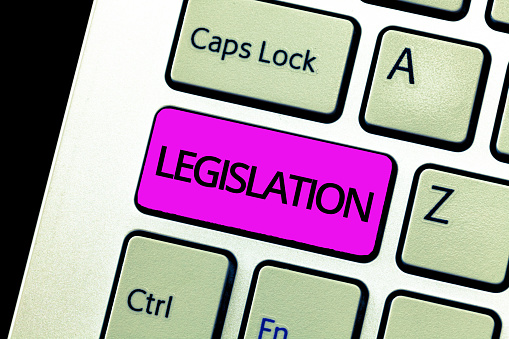
The Fashion and Beauty Industry: Legal Updates
July 27, 2022
Domestic workers lured into exploitation in the Gulf
August 1, 2022Article written by Laetitia Ponde Nkot
As the UK government pursues to strengthen an improved and effective justice system, it motivates and furnishes people with the option to settle their disputes consensually where possible, aiding people in avoiding the time, cost, and stress of an adversarial court conflict.
Mediation will be made compulsory for minor claims. Claims smaller than £10,000 such as disputes over goods and services would be redirected automatically to mediation. People would be advised immediately to a free hour-long telephone session with a professional mediator provided by HM Courts and Tribunals Service (HMCTS) before their case can be permitted to a hearing.
Background
Last year, the Ministry of Justice requested Evidence on Dispute Resolution in England & Wales. The responses affirmed the array of benefits to individuals solving their cases, but it also spotlighted that public awareness was limited and that more necessitated being accomplished to assist people to gain and enter into dispute resolution procedures.
The civil justice system in England & Wales
The civil justice system treats non-criminal matters of law that are not family disputes or matters dealt with by the tribunals. Opposite criminal cases – in which the state prosecutes an individual – civil court cases begin where an individual or a business believes their rights have been breached. Categories of civil cases encompass businesses undertaking to recuperate the money they are payable; individuals seeking indemnities for injuries; or individuals or businesses demanding poorly provided goods or services.
Mediation within the current civil justice system in England & Wales
Prior to a person (or ‘party’) can file a claim within the civil courts, they are requisite to follow the guidance set out in the Practice Direction on Pre-Action Conduct and Protocols of the Civil Procedure Rules (CPR). The pre-action guidance ruled that the court may ask parties to give evidence that they have taken into consideration using a dispute resolution means. For consumer disputes, this could involve utilising an Alternative Dispute Resolution (ADR) scheme.
Where a party is perceived to have inexcusably rejected to do so, the court is entitled to apply penalties such as pausing (or ‘staying’) the case until the statutory stages have been taken, or instructing the party to blame to fund adverse costs at the end of the case (compelling a party to reimburse all or bot of the other party’s litigation expenses).
In spite of these preconditions, authorities, and counterincentives, data showed that the practice of mediation has rested inadequate, notably for small claims (normally rated under £10,000), which compose 61% of claims within the County Court. To illustrate, in only 21% of small claims do both parties consent to take part in a mediation discussion with the Small Claims Mediation Service (SCMS). This signifies that the majority of parties to small claims, and disputes neglect to profit from a free service that could counsel them to sort out their case in a considerably rapid and non-anxiety-ridden method. It also implies that judicial time and expertise are being employed in cases where it may not be recommended, as parties have not tried to conclude their problem conjointly. Consequently, court assets are blocked from more complicated situations; it delays for all to retrieve the justice they look for, and the courts run less productively than they could be.
The present mediation approach for small claims
The small claims track is usually for claims estimated up to £10,000, even if inferior caps enforce in a few events. It has a particular set of rules within the CPR (part 27) with the aim of launching a consistent technique for handling simple cases of little financial value. To facilitate this objective, HM Courts & Tribunals Service (HMCTS) control the SCMS, which offers parties a free one-hour mediation appointment (typically over the telephone) with a mediator employed by HMCTS.
The parties can reach the SCMS via a diversity of ingress points after an official petition has been formed, consisting of Online Civil Money Claims (OCMC); Money Claims Online (MCOL); the County Court Money Claims Centre (CCMCC); or by judicial referral. Cooperation is not mandatory, and only where both litigants approve to mediate is a case directed to the assignment.
Alternative Dispute Resolution
This guidance pointed up that litigation should be considered as a last resort and called for parties to evaluate whether accepting dispute resolution might allow them to find a solution without the obligation to issue court proceedings.
There are different alternative dispute resolution (ADR) actions available. The most frequently availed in civil cases is mediation. This is a flexible and private manner, which entailed designating a mediator, who is a nonpartisan and neutral third person, to help the parties negotiate the issues and come to a reciprocal determination of the dispute.
Justice Minister Lord Bellamy QC said: Millions of businesses and individuals go through the civil courts every year, and many of them simply do not need to. Mediation is often a quicker and cheaper way of resolving disputes and under our proposals, this will be free of charge for claims up to £10,000.
Federation of Small Businesses (FSB) National Chair Martin McTague said: We support a more accessible, fair and affordable dispute resolution system. These proposals are a step in the right direction to help speed up access to justice and to avoid expensive litigation for small claims.
Over 2.5 million disputes were resolved through ADR in the past six years, and 80% of consumers who adopted an ADR were of the opinion their questions would not have been cleared up without it.
Mediation Reform Outcome
The Government appreciates viewpoints from court users, mediators, the legal profession, the judiciary, the advice sector, and anybody with an interest in the resolution of civil disputes. The consultation that was launched this 26 July will last 10 weeks and a response will be communicated in time. The £10,000 maximum would not incorporate personal injury or housing disrepair claims, which have a lower threshold.
It is anticipated that up to 20,000 extra cases each year could be settled away from the court under this plan – discharging people the time and cost of litigation. This would also liberate important court capability, with up to 7,000 judicial sitting days possible to ease decrease retardation for cases requiring a hearing. All-inclusive, over 272,000 people should be able to access free mediation.





